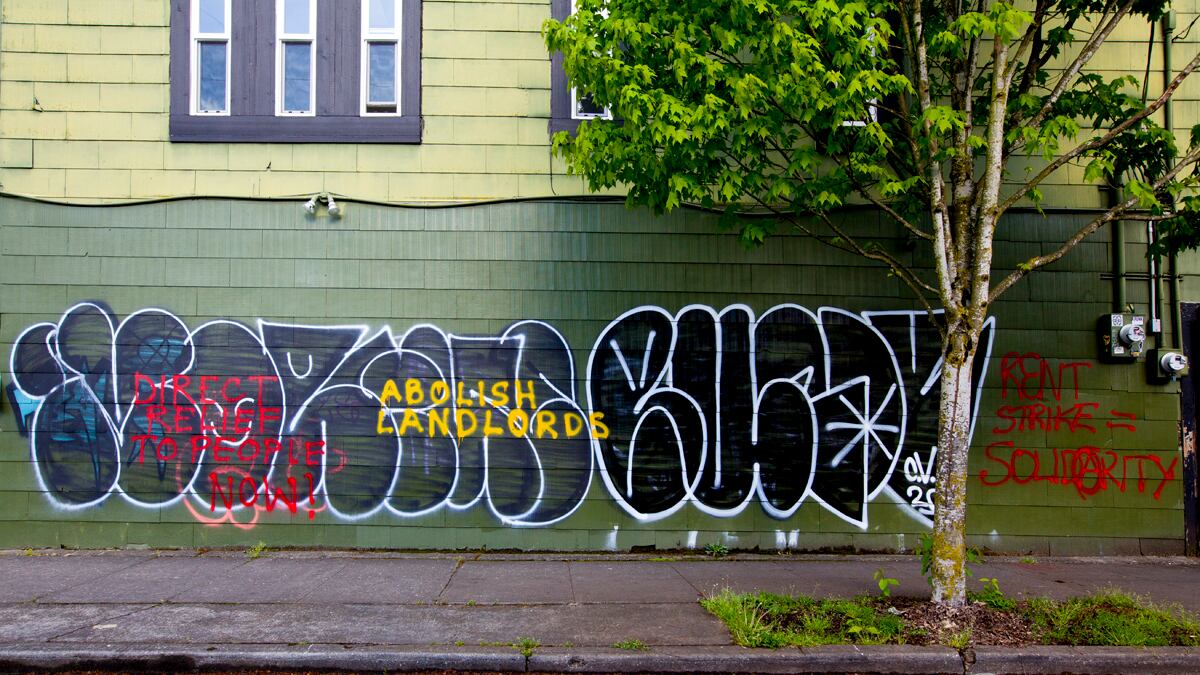When Juan lost his job in March, his landlord didn't seem to care much about Gov. Kate Brown's eviction moratorium.
Juan, 43, (WW is withholding his real name because he's undocumented) worked full time as a cook before the pandemic.
Juan provided letters to his landlord showing why he couldn't pay rent. Despite the moratorium, Juan says the landlord pressured him to look for rent assistance. He then told Juan that he and his wife and three children would have to move out of their apartment in the Powellhurst-Gilbert neighborhood if Juan couldn't pay.
Without proof of legal residence, Juan was in no position to blow the whistle on his landlord.
El Programa Hispano, a Latinx nonprofit, gave Juan two months of rent assistance, which helped, but he is still in debt and unable to pay rent after that.
"If I'm kicked out, I would have to live in my car until this pandemic is over and I can go back to work again full time," Juan says in Spanish.
The nonprofit reached out to the landlord, and once the landlord discovered Juan had legal support, he changed his demeanor. He went from pestering Juan to pay the rent and threatening eviction to ignoring him altogether.
The landlord did not respond to a request for comment.
Across the state, advocates say, landlords are taking advantage of those hit hardest by the COVID-19 pandemic: undocumented Oregonians, particularly renters.
The residential eviction moratorium is supposed to protect all tenants regardless of citizenship status. Issued by Gov. Brown on April 1, it prohibits eviction and late fees for nonpayment of rent. Initially, it was set to expire June 30, but Brown extended it by three months to Oct. 1 and added a repayment grace period ending March 31, 2021.
Undocumented Oregonians are particularly vulnerable to the economic dislocations the pandemic has caused. They are ineligible for government assistance, such as unemployment and stimulus checks, and often lack savings and access to health care.
Juan is one of the people struggling. He can't pay his other bills, either. His children don't know they might be evicted.
El Programa Hispano's executive director, Edith Quiroz, says there are hundreds of cases of discrimination and harassment across the state, and many cases like Juan's fall through the cracks.
"There's not a lot of pro bono legal support for these issues. That's where they tend to get lost," Quiroz says. "These people that are essential workers cleaning hotels and working in the restaurants so that we can go eat, they don't have resources."
Anthony Veliz created the Oregon Latinx Leadership Network as a response to the pandemic. During weekly meetings, members share landlord-tenant stories of harassment.
"Verbal abuse, bullying, intimidation, that's horrible," Veliz says. "That can weigh on you for a lifetime. Where's the accountability for the landlords?"
Landlords presume undocumented tenants don't know the law, Veliz says. Tenants like Juan, with families to shelter and provide for, often listen calmly and grin and bear it.
It's hard to know how many tenants like Juan face eviction despite the moratorium. "There's no number of how many cases [are recorded by the courts] because we know most of them go unreported," Veliz says.
Tim Orr, hotline manager for the Community Alliance of Tenants, agrees with Veliz that court records can't fully reflect what's happening.
"We've seen landlords threaten to call [U.S. Immigration and Customs Enforcement]," Orr says. "There's a fear from tenants, a validated fear."
The Rental Housing Alliance Oregon supports about 2,000 landlords with 20,000 rentals. RHA board president Kenneth Schriver is a landlord himself and says it's unacceptable for landlords to prey on undocumented tenants, but it's also not the alliance's job to police its members. That's up to the landlords themselves.
"What it means to be a good landlord involves a certain ethical and moral behavior," Schriver says.
Juan continues to look for work every day, but there's a lot of competition for the few available kitchen jobs. He's at a disadvantage because he doesn't have a Social Security number.
"In reality, it has been sort of hard," he says. "Just imagine being without money, without anything. There has been nothing but worry because one doesn't know what there is to do."

